For some the answer is just a maybe, and for others an absolute yes.
There are trees that are no longer in the ground, because of the previous wet season which were then finished off by Gabrielle. Some of those that are still standing, were flooded for an extended period or are still covered by silt. These trees are in recovery mode, which may take a year. There are also blocks that were nearing the end of their productive life that have been tipped over and need replacing.
Spring wake up is delayed – perhaps 10 or more days later than “normal”. In stressed trees bloom levels are low and flower quality is only average. Stone fruit is completely dependent on the quality of the buds’ stored reserves from last season. There are blocks that have not been pruned until we see what the response might be, which goes counter to the advice posed at the last apples recovery field day. We don’t yet have a good understanding of new root growth after having lived in a puddle for so long, and insufficient understanding of root growth potential before the soil dries out.
There are blocks that have flowered, had flower thinning done and are thinking about a touch up hand thin. Others are awaiting the right day for an ATS application. Cherries, like apples, are due for bud break about now, although this looks a little delayed as well.
There are orchardists that are suggesting that they are like the trees they grow, financially and motivationally on the edge. For many there have been three poor return seasons in a row. And yet there are others that are rearing to go with the prospect of a hot dry season in front of us. Fungicide use is way down compared to this time last year and I have had sprinklers going for more hours already than the total of the last growing season.
So, is this a longer-term sustainable crop for Hawkes Bay? I guess that depends on definitions to some degree, so let’s have a crack at a definition. How about ‘being able to grow a financially profitable crop next year and in 10 years’ time, without degradation of the orchard environment’. Regenerative agriculture is still a bit of a buzzy topic in some circles. Fresh Water Farm Plans (FWFP) are on the near horizon for Hawkes Bay (for Central Otago its next year), He Waka Eke Noa (About – He Waka Eke Noa) has been scuttled, and water allocation planning needs careful attention. We seem to have enough pest and fungi controls for now, but bacteria control is lacking. Being able to intensify production is held back by a lack of readily available dwarfing rootstock scion combinations.
My estimation is that permanent tree crops are naturally in a reasonably good place on the regen ag spectrum. We will get through FWFP with help from Hort NZ, the level of carbon credit accounting as was proposed was never going to be a game changer, and with good advocacy and planning we should get through water allocation. We will keep working on bacteria control with trials happening within the A-Lighter-Touch programme. Mulching is standard orchard practice which mitigates burning in all but exceptional circumstances, and fewer tractor passes are possible if we are prepared to have scruffier looking orchards.
If we do the numbers on last season’s local market wholesale prices, and then run that across high yielding blocks there is some pretty good orchard gate returns per hectare that can be made. Stitching a few seasons of this nature together is high up on the wish list.
Now we need two or three fine, dry years in a row, with reasonable returns for the fruit that will help build back the bank account. Good quality fruit that consumers want to buy repeatedly seems possible under El Nino conditions. Rivers that stay where they are put would be a bonus as would banks that extend seasonal finance to get us to harvest. For those with healthy trees this could be the year, the rest of us need to hang in there anticipating having healthy trees for 2024-25.
Now that this coming Summerfruit season is solved, it’s time to figure out why the broad beans are growing and flowering but not setting. Any tips?
Richard Mills
Summerfruit Technical Advisor
021 632559






